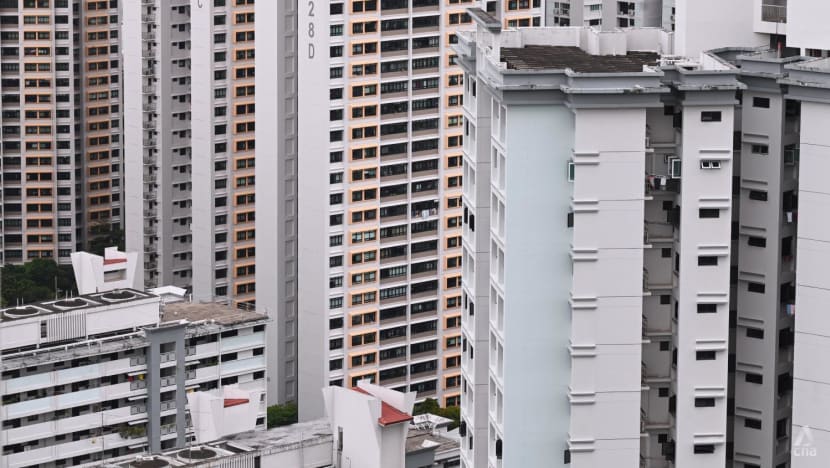
HDB flats in Singapore. (Photo: CNA/Gaya Chandramohan)

HDB flats in Singapore. (Photo: CNA/Gaya Chandramohan)
SINGAPORE: About a third of appeals in relation to the Ethnic Integration Policy (EIP) last year were successful – up from 21 per cent in 2020.
These appeals made up a "small number" – 1.5 per cent – of all Housing and Development Board (HDB) flat resale applications, said Law and Home Affairs Minister K Shanmugam on Monday (Jun 12) at the Institute of Policy Studies' 35th anniversary conference.
In 2022, HDB received 411 EIP-related appeals from flat owners. As of Mar 21, the Housing Board acceded to 128 appeals – 92 from flat owners of Indian/other races, 29 from Malay flat owners and seven from Chinese flat owners.
Under the EIP, introduced in 1989, quotas are set for the number of flats owned by each racial group in an HDB block or neighbourhood to avoid concentrations of any ethnic group.
Mr Shanmugam, who spoke about pluralism and the issue of race, said that the Singapore government intervened to prevent segregation by race in housing estates.
He noted that nearly one-third of all HDB blocks – and 1 in 10 HDB neighbourhoods – reached their EIP limits last year.
“This means the racial concentrations had reached a point where they were going to be higher than our threshold limits. And these threshold limits already have some buffer built in,” he said.
“That is with the EIP in place. If you don’t have the EIP, the enclaves would have become more pronounced.”
Mr Shanmugam said that the side effect of the EIP is that, over time, if someone is of a minority race living in a place where the Chinese EIP has been reached, they have to sell to a minority.
This could mean taking a longer time to sell, and there might be pressure on the price since there is a “smaller demand pool”, he added.
He said that HDB exercises flexibility for this group on a case-by-case basis by giving households more time to sell, waiving EIP limits in exceptional cases, or buying back their units directly for those who genuinely find it difficult to sell their flats.
“So our approach – rather than do away with the entire policy, which keeps Singapore cohesive – we exercise flexibility in a targeted way, to deal with the effects directly, for the small number who is affected,” Mr Shanmugam added.
The minister also said that the Ministry of Home Affairs will be introducing the Maintenance of Racial Harmony Act, which was announced by Prime Minister Lee Hsien Loong in his National Day Rally speech in 2021.
The announcement came after some racist incidents in 2021, as well as discussions on the ground about race relations in Singapore.
"If you look at the current challenges, we are still a work in progress. No society can claim that it is free from racism, and I think those who claim that won't be telling the truth," said Mr Shanmugam on Monday.
"But the reality is we don’t paper over our differences. We don't adopt what some places call a race-blind approach. We don’t think we should ignore race – that will not solve our problems. So we take a race-sensitive approach.
"The government manages race-related issues, to ensure that racial minorities are not disadvantaged."
Editor’s note: This article has been updated to remove a reference to when the Maintenance of Racial Harmony Act will be introduced after the Ministry of Home Affairs corrected this information contained in the speech.